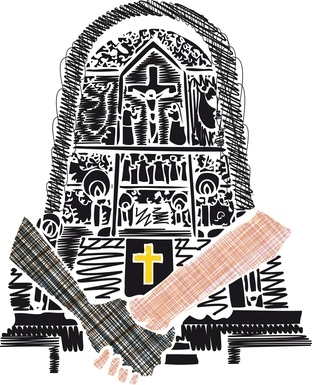 As a divorce and family mediator, I often wonder what my clients were like once upon a time…. when they fell in love with each other, became engaged, planned their wedding, said yes to the dress and each other and then took their vows of enduring love and commitment.
As a divorce and family mediator, I often wonder what my clients were like once upon a time…. when they fell in love with each other, became engaged, planned their wedding, said yes to the dress and each other and then took their vows of enduring love and commitment.
I imagine that life was awash in the first blush of love and they believed that those feelings would last forever. Not only last forever, but they would see them through all the trials and travails that marriage and family brought their way.
Sometimes it’s good not to see too far down the road – sometimes not so good. In the case of marriage, where we are making a lifetime commitment, I do believe it’s important to see as far into the future as possible.
I tend to look at things in their essence – what, at the core, is the spirit, intention, heart of something? We know that there is a physiological, chemical reaction to the body when we fall in love. So what happens when that chemical reaction fades, which it most assuredly does? We are human after all. We have our personalities, temperaments, little peccadilloes, and coping mechanisms. We have ideas and ideals about life, love, family, money, work, health, etc. etc.
- Do those mesh with our soon-to-be partner?
- Could there be a way to find this out ahead of time?
- Would we even want to?
- Would we rather live in what I call, “The hope/lucky” world? We hope we get lucky and it will all work out somehow.
Wouldn’t it be interesting to grab these couples on the front end of the marriage train and walk them through the realities that life will surely throw in their euphoric path?
I found out recently that a friend of mine is involved with the Pre-Cana classes in her church. This is a marriage preparation course that couples must undergo before they can be married in the Catholic Church. I had heard about it before and the concept intrigued me, but I really didn’t know the details so I started doing a little research.
The name is derived from John 2:1-12, the wedding feast at Cana in Galilee. Approaches to Pre-Cana vary among Catholic dioceses and parishes. Often, six weekly sessions are led by a priest or deacon with support from a married Catholic couple. This is, in part, what the Archdiocese of New York explains on their website:
Because marriage is so significant, the Archdiocese insists that all couples go through the marriage preparation process. There are several goals of this process:
To determine whether you have the basic elements of a psychological, intellectual, moral and legal capability for marriage and family life;
To offer you practical advice and assistance to preserve and cultivate your married love, including such topics as marital communication, and how to overcome the inevitable challenges and difficulties of married life;
When my friend mentioned casually one day, that she conducts classes of Pre-Cana in her church, I told her that I would love to come and speak at her class. She thought it would be a great idea and we have arranged for me to do so in early January.
In Part 2, I’ll talk about the elements of my perspective that she and I discussed and what I will share with her class.
If you know anyone who would be interested in reading this blog, do not hesitate to forward it. Please feel free to use the Comments Box below to ask any questions, to comment, or to request more information.


![Divorce With Dignity: A Determined and Optimistic Path [VIDEO]](https://divorceandfamilymediationcenter.com/wp-content/uploads/2025/06/IMG-Divorce-With-Dignity-A-Determined-and-Optimistic-Path-500x383.png)
![Why Doing Nothing Is Sometimes the Best First Step in Mediation [VIDEO]](https://divorceandfamilymediationcenter.com/wp-content/uploads/2025/05/1748482013background_0001-500x383.png)
![He Said No to Mediation — and Lost More Than Just Money [VIDEO]](https://divorceandfamilymediationcenter.com/wp-content/uploads/2025/05/1747931592background_0001-500x383.png)
![It’s Not Just What You Say—It’s What They Understand [VIDEO]](https://divorceandfamilymediationcenter.com/wp-content/uploads/2025/04/1746050307background_0002-500x383.png)
Ada,
This blog is inspiring. One of my dearest friends is a minister on Capitol Hill where I live. He’s described his pre-marital classes that couples (whom he will marry) must go through. It’s a rigorous multi-class training. Based on your blog, I’m going to ask
him whether I could talk with couples whom he counsels. After mediating maybe hundreds of divorces it’s clear couples need to know in advance the wreckage a divorce can impose on them.
Thanks for sharing a marvelous idea.
Sig Cohen
Ada,
I think Sig is right on with his reply – I think couples would benefit greatly from knowing more about the impacts of divorce, the challenges and benefits of communicating successfully, and about how mediation can support couples, in a non-therapeutic way, when they are struggling around specific issues/problems in their marriage on which they can not agree. Will look forward to Part II of the blog post.
Halee Burg
Interesting article. I wonder how the classes and process work. How “real” can they make married life to soon to be married couples?